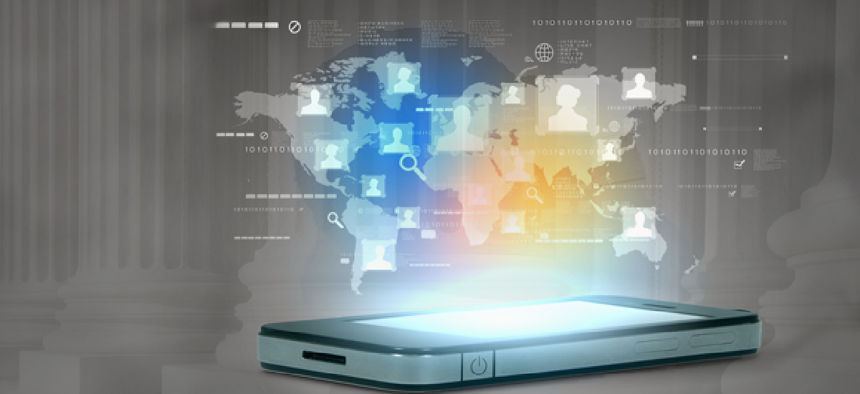Smartphones before the court: Searchable wallets or pocket PCs?

There are tools and techniques law enforcement can use to get data from a smartphone, but the question of when police can search a phone remains to be decided.
Smartphones contain a wealth of information that can translate into evidence in civil and criminal court cases, and law enforcement agencies increasingly are mining this data in their investigations.
“If law enforcement or the government want to see your data, they can see it,” said Joe Trickey, federal marketing manager for Dell, which has developed its own solution for helping investigators get access digital data, the Mobile Digital Forensics platform. “Nothing is invulnerable at this point, given enough time.”
Which raises the question, how much access should police have to the personal data contained on smartphones? That data is far different from what people traditionally have carried on their persons, said John Carney, chief technology officer of Carney Forensics. Not only is the volume of data orders of magnitude greater than what would fit in a wallet or billfold, much of it is of a different nature.
“A smartphone is our alter ego,” Carney said. It can tell where we have been, what we have been doing and when we did it. “The expectation of privacy is different.”
The question of police access was argued before the Supreme Court this spring in Riley v. California, the case of a San Diego college student whose Samsung phone was seized by police when he was pulled over for driving with expired license plate tags. Evidence from the phone was used to convict him of participating in a shooting. Was the evidence admissible? Should police have been able to seize and search the phone without a warrant?
David Riley’s attorney, Jeffrey L. Fisher, said no to both questions. Personal belongings and papers have always been protected from warrantless search, he argued. “That protection should not evaporate . . . because we have the technological development of smartphones that have resulted in people carrying that information in their pockets.”
The government does not agree. The California solicitor general said that physical photographs in a suspect’s pocket at the time of arrest have always been fair game for police. “What would have been reasonable in that situation does not become constitutionally unreasonable simply because Mr. Riley instead carried his photographs in digital form on a smartphone.”
Deputy U.S. Solicitor General Michael Dreeben argued that waiting for a search warrant could give a suspect time to encrypt, wipe or lock down a phone, making it useless for months as police worked to get into it.
The justices, while not completely convinced that smartphones should be completely off-limits, also were leery of giving police carte blanche in seizing and searching them. A minor traffic offense could open up to police everything from personal email and medical data to bank records and GPS data, Justice Elena Kagan said. “People carry their entire lives on cell phones,” she said. “That strikes me as a very different kind of world.”
How the court will address that world will be decided this summer.
NEXT STORY: New tech drives DOD's geospatial spending





